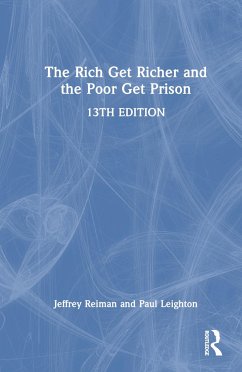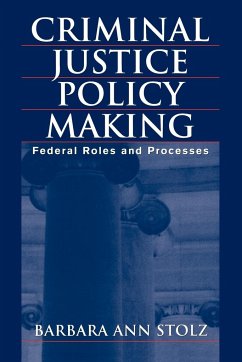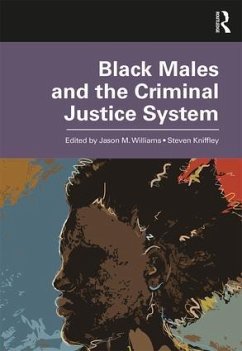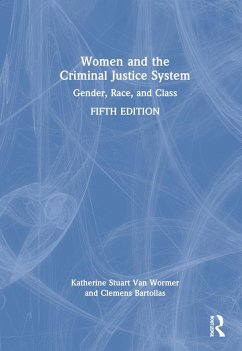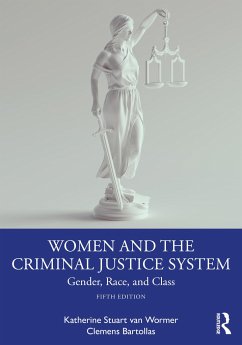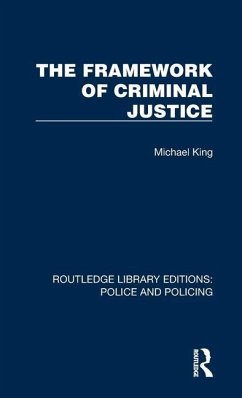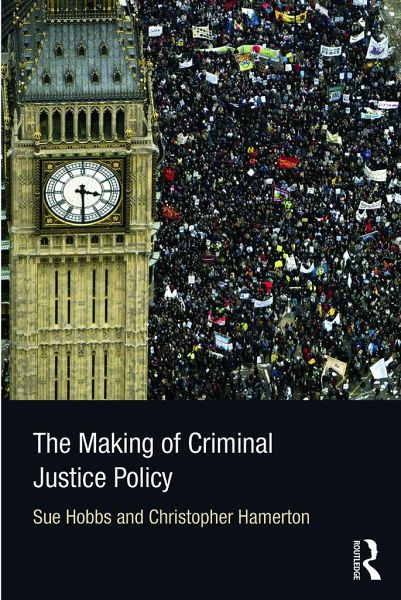
The Making of Criminal Justice Policy
Versandkostenfrei!
Versandfertig in 1-2 Wochen
58,99 €
inkl. MwSt.
Weitere Ausgaben:

PAYBACK Punkte
29 °P sammeln!
This new textbook will provide students of criminology with a better understanding of criminal justice policy and, in doing so, offers a framework for analysing the social, economic and political processes that shape its creation. The book adopts a policy-oriented approach to criminal justice, connecting the study of criminology to the wider study of British government, public administration and politics. This text is perfect for students taking modules in criminology; criminal justice; and social and public policy, as well as those taking courses on criminal and administrative law.






